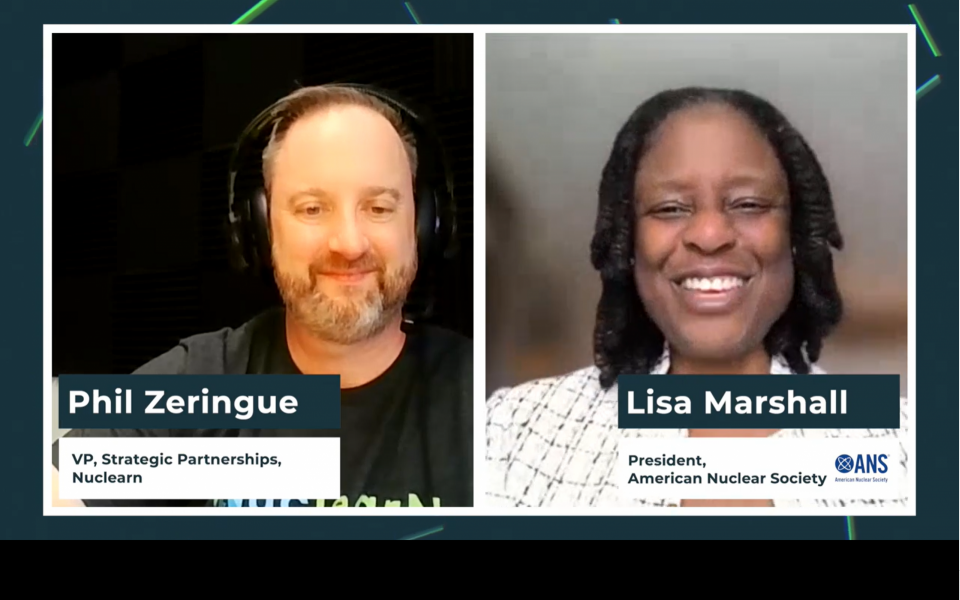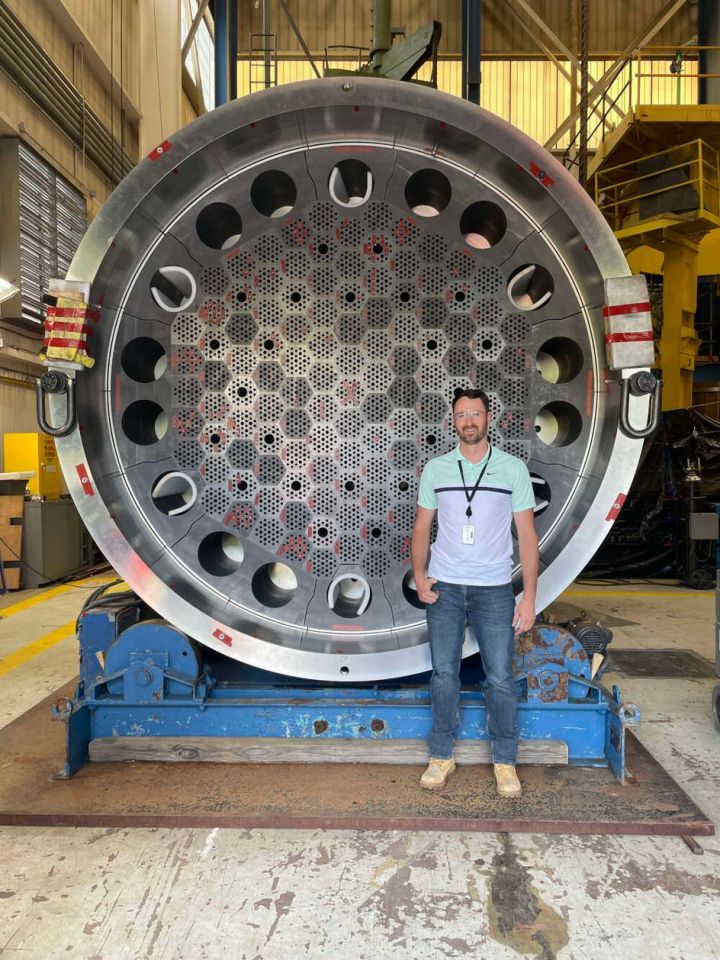Two antinuclear activists become pro-nuclear technology communicators
Two British environmental writers who were bitterly opposed to nuclear energy development just a few years ago decided to do some homework. Their questioning attitude and fact seeking minds have led them to the inescapable conclusion that most of the arguments against nuclear energy repeatedly offered by the opposition have been pure fabrications. George Monbiot and Mark Lynas both bring assets to the battle for hearts and minds in the energy source debate that are hard to match - they are recent converts to a pro-nuclear technology position with deep credentials in the environmental community. In addition, they are professional communicators with stories to tell.
Last Friday, Lynas's publisher launched his new book titled The God Species: How the Planet Can Survive the Age of Humans. Within hours, customers who tried to access the book via Amazon.co.uk received a message stating that the book was not currently being offered because it was under review/investigation. Since Lynas had taken some aggressively controversial positions in the book, several of his fans offered conspiratorial explanations for Amazon's decision to pull the book off of the virtual shelves.
After a flurry of Twitter tweets and blog posts, the issue was resolved and access to the book was restored. Apparently someone thought that the book would be a hardcover and complained to Amazon when they received it in a trade paperback format. As someone in the entertainment business once said - no publicity is bad publicity as long as they spell your name right. I bought the book for my Kindle partially based on the attention that the implications of possible censorship generated in the social media world.
The primary theme of the book is that man is now so influential in the planet's systems that it is time to taking responsibility for the consequences of our actions; we cannot claim those consequences are merely unintended and unpredictable. Lynas wrote that he "began to think less like an ideologue and more like an engineer." He believes it is time to use the knowledge and technology that society has developed in order to purposely remain on the right side of nine recognized "planetary boundaries" including climate change, biodiversity loss, water use, reactive nitrogen in the biosphere, land use, aerosols, toxins, ocean acidification and the ozone layer.
After years of faithful adherence to the creed of his colleagues in green organizations, Lynas has begun to recognize that nuclear fission is a powerful tool that can help mankind to prosper while still remaining on the right side of several different planetary boundaries including those related to climate change, aerosols, and ocean acidification. His education is not yet complete, however, since he apparently has not realized that nuclear energy has a role to play in transportation - particularly large, fast ships that could help to replace air travel, a larger that realized role to play in land use, a larger than recognized role in distributed power systems in remote locations and a larger than realized role to play in fresh water production.
The important news for nuclear advocates, however, is that Lynas's book has already encouraged critical thinking and additional homework in places that are hard for nuclear professionals to reach. It was reviewed favorably by Scotland's Renewable Energy Blog who said the following:
The science and arithmetic behind these boundaries is delivered in a straightforward and entertaining way. The book is extremely easy to read in spite of the huge sweep of scientific ground it covers. Sprinkled throughout are the 'magic bullets' that the author is currently promoting as key tools in our planetary management armoury. These include lots of nuclear power, genetically modified crops, the privatisation of water management and the continuing movement of population from the country to the city. 'Conventional' environmental groups such as Greenpeace come in for some pretty harsh criticism for their opposition to some of these remedies, and are presented almost as part of the problem rather than part of the solution.
Ray Mears Extreme Housewifery made the following comment:
The arguments he puts forward are new to me, however the evidence he provides appears to be well researched, referenced and compelling. It has certainly led me to reconsider my opinion - and to desire to obtain further information to help me clarify my thoughts on the subject. I would never have thought that I could turn into an advocate for the use of nuclear power, but already the paradigm shift has begun in my brain. Interestingly too, Lynas is not shy about admitting to past errors of judgement, or misreading the evidence to suit an ideological position.
On July 7, 2011 the UK Royal Society of Chemistry sponsored a public debate featuring four people who took opposing sides of the following proposition:
New carbon targets requires reducing emissions of greenhouse gases by 50% for 2030. This house believes that it will be impossible to meet the emissions reductions required to fulfil these obligations without the use of nuclear power.
George Monbiot and Malcolm Grimston, a Senior Research Fellow from the Centre for Environmental Policy at Imperial College London, spoke in favor of the resolution; Doug Parr, the Chief Scientist at Greenpeace and Roger Levett, an independent energy consultant, were opposed. The pro-nuclear side won 63-9. Below is a brief sample of the debate.
The full debate remains available on the RSC website.
Though Monbiot has become a nuclear technology fan who recognizes the potential for both current and future possibilities like molten salt reactors fueled with thorium and integral fast reactors that burn both U-235 and U-238, he holds a negative opinion of the industry itself. Perhaps that is strictly due to his experiences with the British nuclear industry, but there might be some lessons in his observations that are worth consideration.
Monbiot and Lynas are just the sort of thinking communicators that can take solid information about nuclear energy into new areas; I am glad they have decided to question the antinuclear catechism that they have heard from their green colleagues for so many years.
Rod Adams is a pro-nuclear advocate with extensive small nuclear plant operating experience. Adams is a former engineer officer, USS Von Steuben. He is the host and producer of The Atomic Show Podcast. Adams has been an ANS member since 2005. He writes about nuclear technology at his own blog, Atomic Insights.

-3 2x1.jpg)








